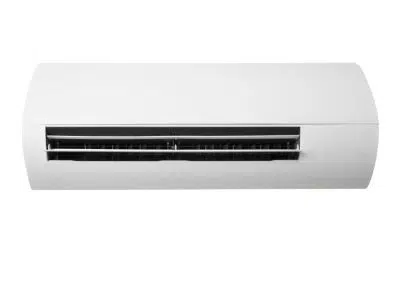How Heat Pumps Make Heating Your Home Easier and More Efficient
As winter arrives in full force and temperatures drop lower and lower, homeowners everywhere are firing up their heaters and furnaces to ward off the icy winter chill. And depending on what kind of heating systems they have, some homeowners may be paying more than others when the utility bills are due.
Many central heating systems consume a lot of energy, whether in the form of electricity or natural gas – particularly if they’re old or outdated. But of all the heating systems out there, heat pumps are generally the most energy-efficient, which is why they’re becoming more and more popular. Keep reading to learn all about heat pumps and how they can help save money during the cold winter months!
What a Heat Pump Is – And How It Works
In essence, a heat pump is a machine that captures heat energy from a cooler space and transfers it to a warmer one. In the case of a home HVAC system, a heat pump can be used for both heating and cooling – to heat the home, it draws thermal energy from outdoors and transfers it inside, while to cool the home, it simply does the opposite.
Heat pump systems generally comprise two separate but connected units – an indoor “air handler” unit and an outdoor unit. The units are connected only by electrical wires (which supply power and allow them to communicate) and copper refrigerant lines, which facilitate the transfer of heat between the two units.
The refrigerant lines are connected to special metal coils inside each unit. The outdoor coils absorb heat from the air and pump it into the indoor coils. The indoor unit then radiates and distributes heat throughout the home using a blower fan. The refrigerant travels back to the outdoor unit, and the process repeats until the house reaches the desired temperature.
Advantages of Ductless Heating Systems
 One form of heat pump that’s become more and more popular in recent years is the ductless mini-split. Ductless heat pumps operate by the same principles as central heat pump systems, but instead of one large unit heating the entire home, ductless systems feature multiple smaller heat pumps heating individual rooms or spaces.
One form of heat pump that’s become more and more popular in recent years is the ductless mini-split. Ductless heat pumps operate by the same principles as central heat pump systems, but instead of one large unit heating the entire home, ductless systems feature multiple smaller heat pumps heating individual rooms or spaces.These systems are typically comprised of a small wall-mounted indoor unit and a small outdoor unit located near the exterior of the same wall. Since they require no ducts and only a small hole is needed for the refrigerant/electrical conduit, ductless units are easy to install. Their main advantage, though, is efficiency. Homeowners can heat each room independently, so no energy is wasted in unoccupied rooms – nor is any heat lost as air travels through ductwork. Ductless heating systems also generally consume less energy than large central units.
Energy-Saving Heat Pumps Reduce Heating Costs

The Department of Energy estimates that using a heat pump instead of an electric furnace can save homeowners up to 50% on their heating costs. And innovations in heat pump technology are producing many types of high-efficiency heat pumps, such as geothermal models, which draw heat from the ground or a nearby water source for even greater efficiency.
And since heat pumps can handle both heating and cooling, homeowners can also save on maintenance costs. So as winter kicks into high gear, homeowners would do well to ask their local HVAC expert about heat pump installation!
About Gene Johnson Heating, Cooling, Plumbing and Electrical
Gene Johnson Heating, Cooling, Plumbing and Electrical has been Seattle’s trusted home service company since 1976. Their honest, upfront pricing, outstanding customer service, unbeatable workmanship, and community involvement have earned them numerous awards and 5-star reviews. Their trustworthy technicians are available around the clock for prompt service, so don’t hesitate to call Gene Johnson anytime for heat pump services in Seattle, WA!





